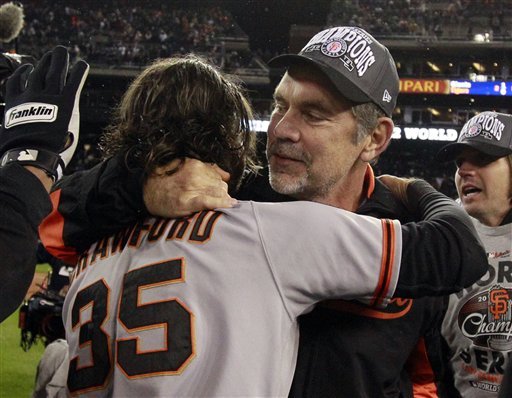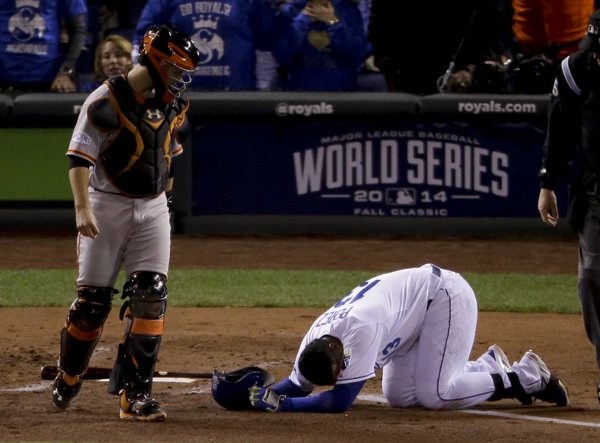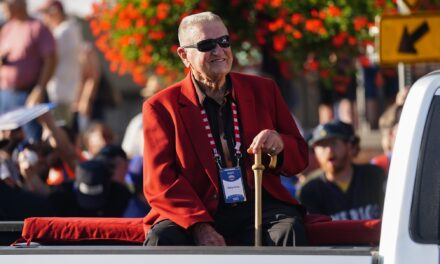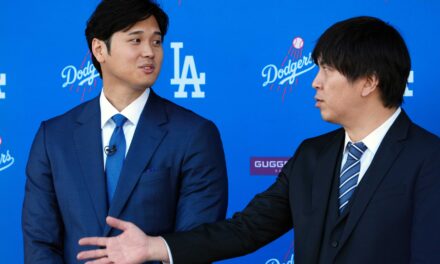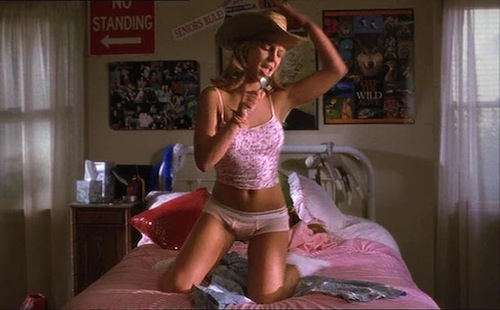
Titanic is one of Hollywood’s most successful films. Winner of an unprecedented 11 Academy Awards, the James Cameron blockbuster ran 3 hours 14 minutes. The Kevin Costner classic Dances With Wolves won 7 Academy Awards and was exactly 3 hours. The most frequently quoted movie of the last 20 years is Pulp Fiction. Tarantino’s masterpiece was nominated for 7 Oscars and ran over 2 ½ hours. And then there’s the unforgettable Crossroads starring Britney Spears. That movie ran 94 minutes.
If Major League Baseball has their way, the future will give us more Britney and fewer Big Kahuna Burgers.
MLB is presently testing new methodologies in the Arizona Fall League to make games quicker. Some of these changes include a pitch clock, limited visits to the mound and merely announcing an intentional walk rather than tossing four wide of the strike zone.
Games are definitely getting longer. When Jerry Koosman induced a fly ball off the bat of Davey Johnson and gave the Mets their first title, the game was completed in 2 hours and 14 minutes. 17 years later when Jesse Orosco fanned Marty Barrett to give the Mets their second title the game took 3 hours and 11 minutes. Same 8 ½ innings of baseball, yet taking one hour longer. One obvious reason are pitching changes.
Back in the day starters were expected to go nine innings. The bullpen was filled with guys who were simply not quite good enough to start. During the 1970’s, the “closer” became an integral part of the game. It was tantamount to creating a new position. Rollie Fingers, Lee Smith and Bruce Sutter became household names. And now starters only needed to go eight innings.
The 80’s saw the advent of the “set-up man.” And with that starters simply had to get through seven. Just get us to the bullpen. There was also the arrival of long relief/middle inning guys so if a starter had nothing, rather than pitching out of tight spots, he could be yanked early. Teams also began maintaining players whose job is simply to face one batter, be it a lefty specialist or a ground ball pitcher whose job it is to generate a double play.
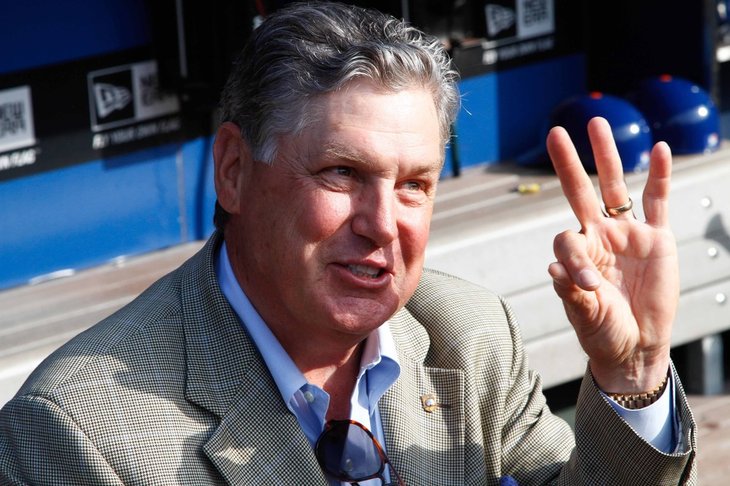
In 1973 Tom Seaver won the Cy Young Award. He earned $130,000 while tossing 290 innings. By comparison, the Giants’ Javier Lopez, a player who primarily comes in to face one or two batters, earned $4 million this season while tossing all of 37.2 IP. Of course salaries have skyrocketed since 1973, but this shows the premium management is willing to dole out for a seldom used yet important piece of the puzzle.
However, it does work. The KC Royals became AL Champions living by the rule of only getting 5+ from their starters. Twenty years ago that was unheard of. Relievers, once thought of as nothing more than a place to stockpile mediocre pitchers, has now become a key component to winning.
The 1986 World Series between the Mets and Red Sox went seven games and featured 29 pitching changes. The 2014 Series between the Giants and Royals went 7 games but featured 44 pitching changes.
Average game time of the 7-game 1973 World Series was 3:08 but that included two extra inning contests. Five of the seven games were completed in under 2:45. By contrast, the 7-game 2014 World Series, which included no extra innings, had an average time of 3:30. The quickest game was 3:09.
This winter MLB is tinkering with the very essence and beauty of the game by trying to solve a problem they themselves created.
Owners no longer view players as ‘athletes’ but rather as ‘investments.’ And rightfully so. When teams hand over $137 million to Johan Santana, $180 million to Justin Verlander or nearly a quarter of a billion to Clayton Kershaw, managers damn well better treat the investment with care. You don’t buy a Lamborghini and fill it at ARCO.
Can you imagine the bedlam that would erupt if Don Mattingly overused Kershaw and ruined his elbow in the first year of a multi-year deal?
Ballplayers—particularly pitchers—are coddled, pampered and yes, babied, more than ever. No one paid attention to pitch counts for Nolan Ryan or Steve Carlton. But those guys weren’t long-term investments. So, yes, pitchers are coddled. But in large part fault should be placed at the feet of MLB.
Prior to 1969 the team with the best record in each league met in the World Series. Done. MLB then expanded, first to two divisions, then three. They added the LCS, the LDS, one wildcard and then a second one. In 1698, 2 out of 20 teams (1 out of 10) advanced to the ‘post-season.’ In 2014, 10 out of 30 teams (1 out of 3) advance.
MLB and owners embraced this idea. And why not? More post-season slots means fans will continue paying admission since their team now has a chance. Previously, stadiums would be empty throughout September. But not anymore. Nowadays, to be in a pennant race, you don’t even need to be good, just slightly above mediocre. 82, 83 wins will get you in the fight. The Mets this season finished below 500 winning just 79 games but only missed the playoffs by 9 games. By contrast the 1976 Mets won 86 games, yet missed the playoffs by 15 games.
In 1954 the NY Giants became World Champions. It took 158 games. 60 years later, the SF Giants became World Champions. It took 179 games. That’s a 13% increase in the season.
October 2, 1954, Willie Mays and company were crowned best in the game. On October 2 2014, Hunter Pence and company hadn’t even played the first game of the LDS.
With MLB extending the season—not only to 162 games from 154—but almost one full month of playoffs, investments are put in jeopardy. That’s an extra month of players risking an injury. That’s an extra month of possibly pulling a hamstring or breaking a finger sliding into second. It’s an extra month of superstars like Buster Posey and Salvador Perez getting beat up behind the plate. And since much of the big money is locked up in long term contracts for pitchers, that’s more stress on the arms, elbows and shoulders of Kershaw, Verlander, Strasburg and Shields. Giants ace Madison Bumgarner threw 217 innings this season. Then he threw another 52.2 over 3+ weeks in October.
The powers-that-be have brought this full circle. MLB (and owners) want to make more money so they add more opportunity to advance into October which in turn keeps fans paying admission which makes more money which keeps fans tuning in on TV which makes more money from commercials which leads to a month long stretch of post-season games which keep fans paying admission and keeps the revenue flowing in from advertisers which means managers will be forced to manage differently and make more pitching changes which of course means more commercial breaks which translates into longer games which comes full circle with MLB declaring games are too long. Huh???
The irony is that installing a pitch clock and other ludicrous proposals will accomplish nothing. People who find Baseball “slow moving” and “boring” will not suddenly start watching in droves because of a pitch clock. And those of us who are purists only take offense and find ourselves drifting ever so slowly away from the game we’ve loved since childhood.
If you think the game is too long, turn it off. If it’s the 7th inning and you feel a need to keep up with Kardashians or see who gets eliminated on Dancing with the Stars go right ahead. If you need to leave the ballpark because you have a dinner reservation somewhere, feel free to leave.
Baseball is what it is. Closers, set-up men, long relievers, pitching changes, extra rounds of playoffs and now plays under review aren’t going away any time soon. Are games longer than they used to be? Yes. Are they too long? No.
Since the 18th century, despite world wars, attacks on our soil, presidential assassinations, numerous scandals, steroids, collusion, drugs, games being fixed and mostly incompetent commissioners, the game has remain largely unchanged. Although Baseball is declining in popularity (the 2014 World Series was the second lowest rated ever) let’s hope that deviations to the fabric of the game, the very rules we hold close to our heart, don’t result in the final nail in the coffin.
Next time you have a couple hours to kill and feel like watching a movie, would you rather sit through Crossroads because it’s shorter or see Vincent Vega accidentally shooting Marvin in the face?


